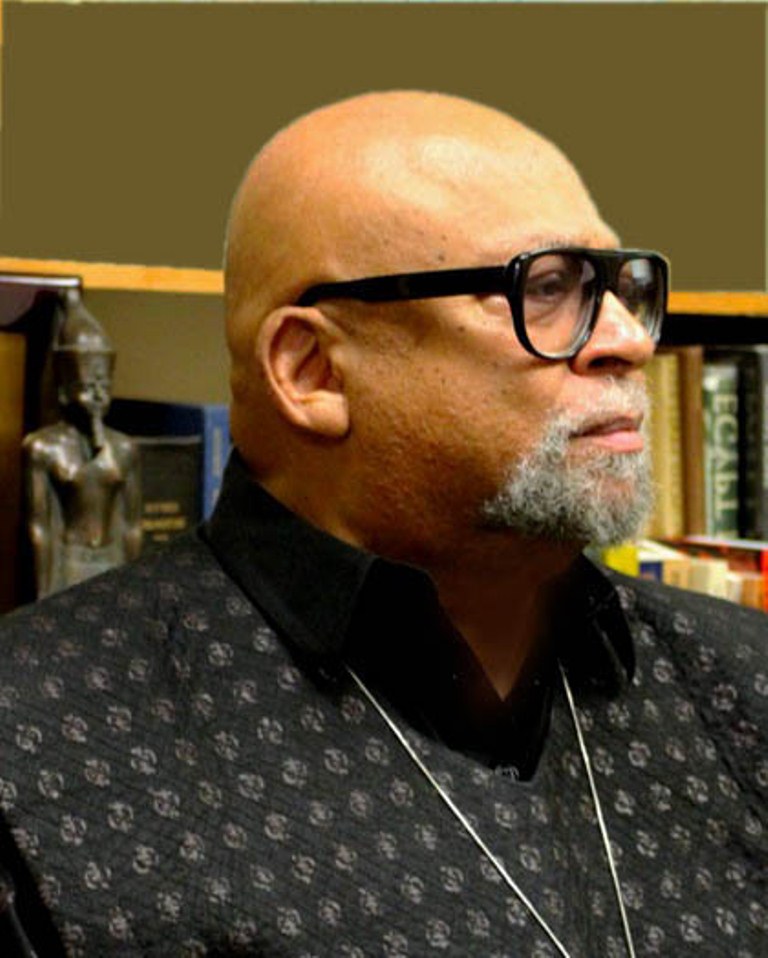
Anti-Israel Activists Can’t Handle the Truth
Maulana Karenga has demonstrated, time and again, a profound lack of understanding of the complexities of the Israeli-Palestinian conflict.

Maulana Karenga has demonstrated, time and again, a profound lack of understanding of the complexities of the Israeli-Palestinian conflict.

Again, in the sacred tradition of our ancestors of ancient Egypt of writing letters to loved ones who have made transition and ascension, I reach out to you in writing in this the month of your lying down in peace and rising up in radiance in the heavens. It is one of those bridges of memory we build that supports and sustains us in dealing with the awesome ache of your absence and the persistent longing for your presence.

The barbaric and savage enslavement of African people in this country and indeed, around the world tenaciously asserts itself as a unique and defining moment in the history of humanity, regardless of recent attempts to falsify, minimize, marginalize, distort and deny it.

The current and increasing embrace and touting of artificial intelligence was preceded and made possible by the earlier progressive production of the artificiality of life, that is to say, the undermining and diminishing of what it means to be human and natural in all its complexities.

It is in the early morning when a blanket of quietness covers us and the world and the ocean mist settles softly on our balcony that I begin to offer my tambiko to and for you, as December opens and Kwanzaa comes forth to orient, illuminate and lift up our lives.

By any sane and serious reasoning, measure and meaning, these are bleak, unBlack, challenging and taxing times for this country and especially for us as a people. America, the beautiful, has revealed its ugly monster side, a defining part of its multiple personalities since its framing and founding.

The rapid rise of the Swahili language to global reach and significance reflected in the United Nations Educational, Scientific and Cultural Organization (UNESCO) designating July 7, 2022, as World Kiswahili Language Day brings with it a profound sense of elation and satisfaction of work well done to all those in Africa, the U.S. and around the world who worked hard to achieve this rightful recognition of it.

The Robey Theatre Company presents “Kwanzaa: A Celebration of Unity,” a free virtual play that explores how Kwanzaa can unite people on a global level and help them embrace their differences.

In the midst of the pandemic of Covid 19 and the continuing pathology of oppression, there has emerged an epidemic of racist reactions to the truth of the real founding and functioning of the United States of America.

We move through February and March to celebrate Black History Month I and II as naturally and necessarily as men and women meet and merge for joy and life, and seasons change and bring some new and needed good into the world. Our history is a self-conscious and sustained struggle for growth, transformation and transcendence to ever higher levels of human life in ever-expanding realms of human freedom and human flourishing.

A wide range of Black scholars, activists, teachers, students and community members from the national and global African community will join in discussions of critical issues confronting Black people nationally and internationally which begins this Sunday, October 11, 3:00pm at the virtual International Nguzo Saba 2020 Conference and will continue over the month. The conference marks the 55th Anniversary of The Nguzo Saba (The Seven Principles), the Organization Us and the African American Cultural Center. Focus will be especially on the Nguzo Saba and their use by thousands of organizations and institutions in this country and throughout the world African community for value orientation, cultural grounding and programmatic initiatives.

In reaffirmation. Those of us who still wage righteous and relentless struggle inwardly and outwardly to live a liberated, good and meaningful life will continuously find invaluable sources for grounding and growth in the enduringly relevant and deeply insightful sacred teachings of our ancestors found in the Odu Ifa, especially in this critical time.

Growing up my primary caregiver was my paternal grandmother. Time has a way of revealing the magnitude of someone long after they are gone. My grandmother was the glue in our family and her home was the central focus that brought us all together.

The year 1965 began on an ominous and unsettling note—the assassination and martyrdom of Malcolm X, the Fire Prophet. Even in the white and winter cold of February, it was a sign of the coming fire. Indeed, it pointed toward the fiery fulfillment of prophecy which Malcolm, himself, had predicted. It was there, too, in the title of James Baldwin’s classic, The Fire Next Time. And it was the topic of countless conversations around the country. Baldwin had taken his title from a line in a Black gospel song which says: “God gave Noah the rainbow sign, no more water, the fire next time.” And this, for us, was the fundamental time of turning when the fire would be this time.

The Honorable Marcus Garvey (August 17, 1887—June 10, 1940) stands as a model and a monument of African liberational thought and practice and the human possibilities inherent it. And thus, his life and work offer abundant lessons for us. He emerges in a time of triumphant European imperialism—Europe’s political, economic and cultural hegemony throughout the world. He travels the world and sees Black people everywhere in various forms of domination, certainly less achieved than they could be and less assertive on the world stage than their ancient and glorious history demanded of them.